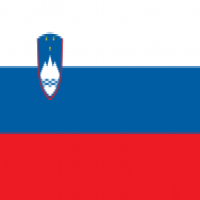Summary:
A Slovenian company specialized in multi-slide zinc die casting with manufacturing of small precision and complex components would like to offer subcontracting solutions to foreign contractors in automotive, consumer electronics, healthcare, hardware, computers and peripherals and many other industries who use large series of small, engineered metal components made of various zinc, aluminium and magnesium alloys in their production.
Description:
Slovenian company is a global manufacturer of precision, engineered metal components. Utilizing proprietary die cast technologies, they offer robust solutions to many industries including automotive, consumer electronics, and healthcare. It serves multiple industrial markets with a large presence in the automotive market. Beside automotive industry they supply small precise parts to hardware, telecommunications, electro/electronics, domestic appliance and some other industries. The company has 26 years of experience, innovation and techniques. The company works with organizations all over the world, helping bring their ideas to life with the highest quality the cast components.
Die casting is a manufacturing process in which molten metal is poured or forced into steel molds. The molds—also known as tools or dies—are created using steel and are specially designed for each project. This allows each component to be created with accuracy and repeatability. Aluminum, zinc, and magnesium are the most commonly used die casting alloys.
Die Casting Advantages:
Die casting can have significant advantages over other manufacturing processes, which often lead to major cost savings, not only in the part price itself but also in the overall cost of production. When you cast a part, you can create complex net shapes, including external threads and complex internal features with minimal draft angles—minimizing secondary operations. You can also combine multiple parts into a single part, eliminating assembly operations and lowering labor costs, with the added benefits of simplified stock control and greater component consistency.
Other benefits include:
• Variable wall thicknesses
• Tighter tolerances
• Fewer steps from raw material to finished part
• Fast production cycle times
• Reduction in material scrap
• Long tool life, especially for zinc and magnesium
Die Casting Alloys:
Zinc, aluminum, and magnesium are the three main die casting alloys. They are normally non-ferrous and their mechanical properties vary greatly to fit almost every type of application a manufacturer may need. Not only can die cast alloys withstand high operating temperatures, but they are also fully recyclable. Die cast alloys also have:
• Good corrosion resistance
• High strength and hardness
• High thermal conductivity
• High electrical conductivity
• Outstanding EMI/RFI shielding properties
• Good finishing characteristics
The company is looking forward to become a subcontractor to manufacturers who use large series of small, engineered metal components made of various Zinc, Aluminium and Magnesium alloys in their production and need a robust solution.
Type (e.g. company, R&D institution…), field of industry and Role of Partner Sought:
Production company who uses large series of small, engineered metal components made of various Zinc, Aluminium and Magnesium alloys in their production and need a robust solution.
Field of activities: Manufacturing
Type of partner: Company
Trans-National Co-Operation: Preferred
Stage of Development:
Already on the market
External code:
BOSI20180613002








